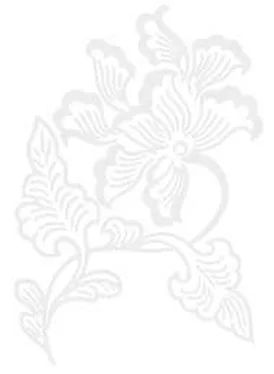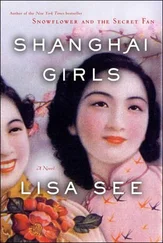Lisa See - Peony in Love
Здесь есть возможность читать онлайн «Lisa See - Peony in Love» весь текст электронной книги совершенно бесплатно (целиком полную версию без сокращений). В некоторых случаях можно слушать аудио, скачать через торрент в формате fb2 и присутствует краткое содержание. Жанр: Старинная литература, на английском языке. Описание произведения, (предисловие) а так же отзывы посетителей доступны на портале библиотеки ЛибКат.
- Название:Peony in Love
- Автор:
- Жанр:
- Год:неизвестен
- ISBN:нет данных
- Рейтинг книги:4 / 5. Голосов: 1
-
Избранное:Добавить в избранное
- Отзывы:
-
Ваша оценка:
- 80
- 1
- 2
- 3
- 4
- 5
Peony in Love: краткое содержание, описание и аннотация
Предлагаем к чтению аннотацию, описание, краткое содержание или предисловие (зависит от того, что написал сам автор книги «Peony in Love»). Если вы не нашли необходимую информацию о книге — напишите в комментариях, мы постараемся отыскать её.
Peony in Love — читать онлайн бесплатно полную книгу (весь текст) целиком
Ниже представлен текст книги, разбитый по страницам. Система сохранения места последней прочитанной страницы, позволяет с удобством читать онлайн бесплатно книгу «Peony in Love», без необходимости каждый раз заново искать на чём Вы остановились. Поставьте закладку, и сможете в любой момент перейти на страницу, на которой закончили чтение.
Интервал:
Закладка:
“To the Chen Family Villa?” I asked, confused. “To the Viewing Terrace?”
“To your husband’s home. That’s where you belong.”
“I can’t go back there.”
“Prove yourself here. Then go home.” As she began to fade away and into her ancestor tablet, she called out, “You’ll know when you’re ready.”
f or th e ne xt eleven years I stayed in Gudang and dedicated myself to Qian Yi and her family. I perfected controlling my basest hungry-ghost qualities by building shields around myself, which I could raise and lower at will. In summer, I moved indoors with the family and cooled the house for them. When fall came, I mastered blowing on the coals in the brazier to make them hotter without singeing my skin or scorching my clothes.
It is said that a clean snow means prosperity in the coming year. Indeed, during my first winter in Gudang, a clean snow blanketed the Qian house and all that lay around it. At the New Year, when Bao came to survey my father’s lands and exhort the workers to increase production, he had news: his wife was pregnant, and he was not increasing the rents and tributes due to the Chen family as usual.
The next winter more clean snow fell. This time when Bao came and announced that his wife had given birth to a son, I knew my mother had been hard at work in the afterworld. Bao did not deliver red eggs to everyone as a celebration for this miracle. He did something even better: He awarded each of the headmen of the villages that housed my father’s workers a mou of land. The following year, another pregnancy, followed ( 2 2 5 )
the year after that by another son. Now that the Chen family’s future was secure, Bao could afford to be generous. With the birth of each new son, he gave another mou of land to the headmen. In this way, the Qian family’s prosperity grew. The older sisters were given small dowries and married out. At the same time, bride-prices came in, increasing Master Qian’s holdings.
Yi grew up. Her lily feet turned out beautifully: small, fragrant, and perfectly shaped. She remained sickly, even though I kept away other spirits who preyed on weakness. With her sisters gone from the house, I made sure she got more to eat, and her qi strengthened. Madame Qian and I turned the girl from a piece of unsculpted jade unfit for use into someone precious and refined. We taught her to dance on her lily feet so she looked like she was floating on clouds. She learned to play the zither in a clear style. Her strategy at chess became as ruthless as a pirate’s. She also learned to sing, embroider, and paint. We lacked books, however. Master Qian didn’t appreciate their purpose.
“Yi’s education is part of a long-term investment,” Madame Qian reminded her husband. “Think of her as a tray of silkworms that must be tended properly so they will spin their cocoons. You would not disregard that asset. If you tend a daughter, she will also become valuable.” But Master Qian was resolute, so we did the best we could with the Book of Songs.
Yi could memorize and recite, but she didn’t quite understand the poems’
meanings.
All too soon Yi was a plum ready to be plucked. At seventeen, she was small, thin, and beautiful. Her features were delicate: jet-black hair, a wide-open forehead like white silk, lips the color of apricots, and cheeks as pale as alabaster. Dimples appeared with every smile. Her eyes shone bright with impudence. Her straight nose and questioning glances revealed her curiosity, independence, and intelligence. That she had survived illness, neglect, footbinding, and a generally weak constitution showed hidden tenacity and fortitude. She needed to be matched.
But her marriage possibilities were slim in the countryside. She could not do the hard labor required of her. She was still sickly, and she had a disconcerting habit of saying whatever came to her mind. She was educated but not to perfection, so even if a city family could be found that would consider a country girl, she would not be judged suitable or ready.
And even in wealthy, some might say enlightened, families, no one wanted a second, third, fourth, let alone a fifth daughter, for it implied that only ( 2 2 6 )
girls could come from the bloodline. For all these reasons, the local matchmaker pronounced Yi unmarriageable. I thought otherwise.
f or th e f i r st time in eleven years, I left Gudang for Hangzhou and went straight to Ren’s home. He had just reached forty-one years. In many ways he seemed the same. His hair was still black. He was still long, thin, and graceful. His hands still entranced me. While I’d been away, he’d stopped drinking and visiting the pleasure houses. He’d written his own commentary on The Eternal Palace, a play written by his friend Hong Sheng, which was published to great acclaim. Ren’s poetry had been collected in editions featuring the finest poets of our region. He’d earned a reputation as a distinguished and respected drama critic. He’d been, for a time, secretary to a juren scholar. In other words, he’d found peace without me, without Tan Ze, and without the company of women. But he was lonely. If I’d lived, I would have been thirty-nine, we would have been married for twenty-three years, and it would have been time for me to start looking for a concubine for him. Instead, I wanted to bring him a wife.
I went to Madame Wu. We were “sames,” and we both shared love for Ren. She had always been receptive to me, so I whispered in her ear. “A son’s only duty in life is to give the family a son. Your first son has failed in this task. Without a grandson, you won’t be cared for in the afterworld and neither will any of the Wu ancestors. Only your second son can help you now.”
Over the next few days, Madame Wu watched Ren carefully, gauging his moods, seeing his solitary ways, and mentioning that it had been a long time since the sound of children had filled their compound.
I fanned my mother-in-law when she rested in the heat of the day. “Do not worry about class. Ren was not a golden boy when he was betrothed to the Chen daughter or when you married in the Tan girl. Both of those arrangements ended in disaster.” I respected my mother-in-law by never sitting in her presence, but I had to rush her along. “This could be your last chance,” I told her. “You have to do something now, while society is fluid and before the emperor has his way.”
That evening, Madame Wu broached the subject of a new wife with her son. He did not object. After that, she called in the best matchmaker in the city.
( 2 2 7 )
Several girls were mentioned. I made sure they were all rejected.
“The girls in Hangzhou are too precocious and spoiled,” I whispered in Madame Wu’s ear. “You had someone like that once before in your household and it didn’t suit you.”
“You must go farther away,” Madame Wu instructed the matchmaker.
“Look for someone who has simple tastes and can keep me company in my old age. I don’t have many years left.”
The matchmaker got in her palanquin and traveled to the countryside.
A few rocks pushed here and there on the road caused her bearers to follow my directions to Gudang. The matchmaker made inquiries and was shown to the Qian house, where two literate, bound-footed women lived.
Madame Qian was remarkably composed and answered all questions about her daughter truthfully. She pulled out a card that recorded Yi’s ma-trilineal ancestors for three generations, including her grandfather’s and great-grandfather’s titles.
“What has the girl learned?” the matchmaker asked.
Madame Qian listed her daughter’s accomplishments, and then added,
“I’ve taught her that a husband is the sun; a wife is the moon. The sun does not change in its fullness, but a woman waxes and wanes. Men act on their wills; women act on their feelings. Men initiate and women endure.
Читать дальшеИнтервал:
Закладка:
Похожие книги на «Peony in Love»
Представляем Вашему вниманию похожие книги на «Peony in Love» списком для выбора. Мы отобрали схожую по названию и смыслу литературу в надежде предоставить читателям больше вариантов отыскать новые, интересные, ещё непрочитанные произведения.
Обсуждение, отзывы о книге «Peony in Love» и просто собственные мнения читателей. Оставьте ваши комментарии, напишите, что Вы думаете о произведении, его смысле или главных героях. Укажите что конкретно понравилось, а что нет, и почему Вы так считаете.












